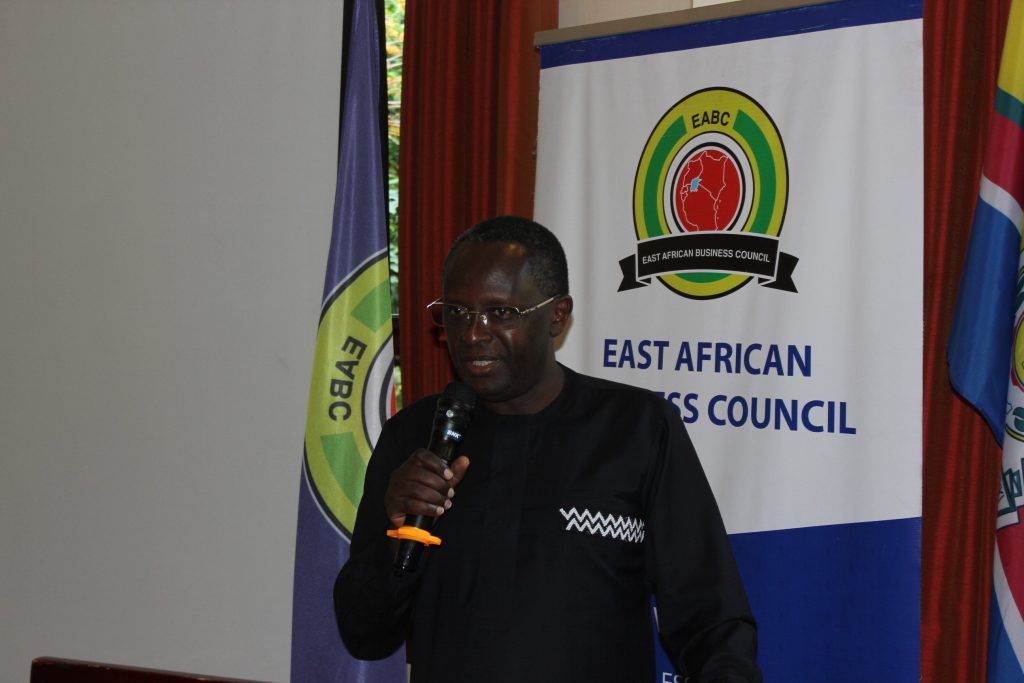Thursday, 3rd September 2020, Arusha, Tanzania: Private enterprises in Arusha, Tanzania, are calling for deeper collaborations between the public and private sector as a strategy to boost intra-EAC trade and investment in the region.
This follows a consultative CEOs roundtable meeting organized today by the East African Business Council (EABC) in collaboration with GIZ Creating Perspectives Project, convening company Chief Executives in Arusha, with aim of deliberating on approaches that the private sector can explore to revamp their businesses amid the pandemic.
The business leaders have lauded the Tanzanian government for its commitment towards sustainable economic growth, following the attainment of the middle-income status from the World Bank, this year.
The leaders also noted that the decision to keep the economy open, offered the private sector a major relief in terms of business resilience as it also strengthened local supply chains. This happens in the background of a recent report by the African Development Bank (AfDB), indicating that Tanzania’s economy is estimated to grow at 5.5% in 2020, recording the highest growth in the region.
During the meeting, EABC CEO, Dr. Peter Mathuki called upon businesses to repurpose their business models to tap into the new emerging opportunities such as e-commerce, digital technology and biotechnology.
“Innovation, value addition, embracing our local content and tapping into our regional supply value chains are some of the imperative solutions that will drive us towards economic growth,” he said.
Dr Mathuki noted that, as Tanzania shares its borders with eight countries in the region, the move to keep the borders open have sustained intra-regional trade and replenished the region’s food basket.
“EAC economies are interdependent and the move to have borders open have seen the supply of staple food and basic necessities across the region maintained,” he said.
The East African Legislative Assembly (EALA) Speaker, Rt. Hon. Martin Ngoga, challenged the business community to form a stronger unified front and defend their business interests in one collective voice through the EABC.
“The security of the EAC community should not just be entrusted to the goodwill of individuals but should be pegged strongly on the law and structures of the community. It’s time for the business community to challenge policies put in place and even petition the EAC Parliament to promptly resolve some of the bottlenecks you are facing,” Rt. Hon. Ngoga said.

According to the World Bank, the pandemic is set to cost East Africa partner states between $37 billion to $79 billion in output losses.
The business leaders are appealing to the EAC Governments to embrace regional integration to enable businesses to tap into the EAC Common market of over 177 million people and the regional supply chains.
Dr. Peter Mathuki, Executive Director /Chief Executive Officer
East African Business Council (EABC)
9th Floor Mafao House | Old Moshi Road | Arusha | Tanzania
P. O. Box 2617 | Tel: +255 27 2520162
Email: admin@eabc-online.com I Website: eabc.info
EABC – The Voice of the Private Sector in East Africa
Notes to Editors: –
About East African Business Council: The East African Business Council (EABC) is the regional apex body of private sector associations and Corporates from the 6 East African countries. It was established in 1997 to foster the interests of the private sector in the integration process of the East African Community. EABC vision is a borderless East Africa for business and investment. The primary mission is to promote sustainable private sector driven in the EAC.
About GIZ -Creating Perspectives: Business for Development, East Africa project is a joint initiative by Federation of German Industry BDI; the Federal German Ministry for Cooperation and Development (BMZ); the East African Business Council (EABC) and the EAC Secretariat. Working with selected 74 growth-oriented small and medium enterprises (SMEs) in East Africa the pilot project aims to improve their economic perspectives by increasing productivity, competitiveness, and innovation.


